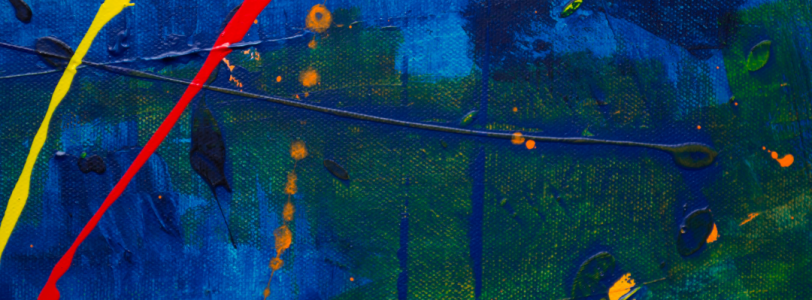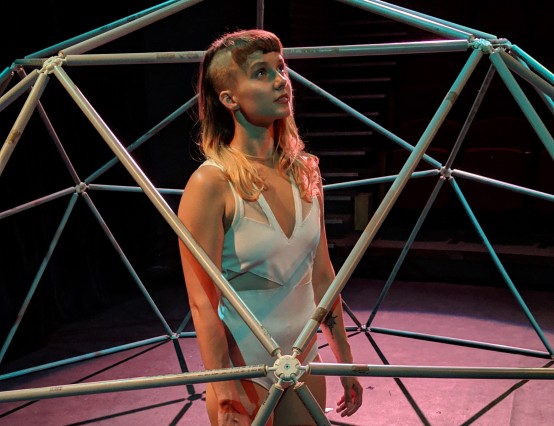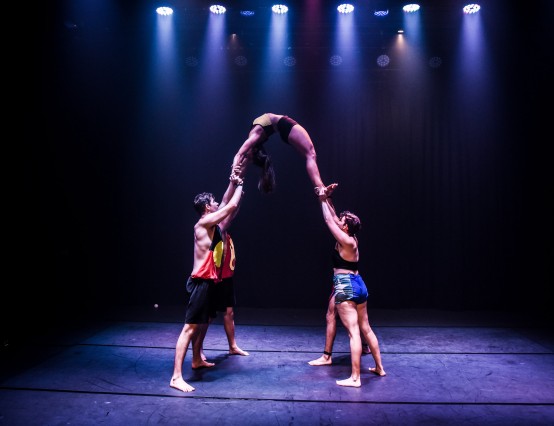Gold Arts Award has two main units, and each one of those is divided into parts. So, let’s tackle each of those units and how you can get on with those within the state-imposed quarantine. Probably.
So much of doing an Arts Award is dependent on being able to leave the house to go see things, attend lessons/workshops/seminars etc. What can we do when we only have ourselves and our cats as company? I’m going to tackle each unit slightly differently. Unit 1 A-D I will go through piece by piece, whereas Unit 2 I will tackle in three sections, before, during, and after.
Gold Award Award Unit 1: Personal Development, Research and Review
Unit 1 parts A&B are all about your personal arts development, and the first section is all about extending your arts practice. Most people have their own idea of what their arts practice is, that much is easy. But, being able to develop your own art within the confines of social distancing, isolation and quarantine does, at first, seem to be a daunting task. Fear not! Ask yourself what it is that you would have done before? You’ll be surprised to find out that there are digital alternatives to most approaches. For example, many practitioners (teachers, workshop leaders etc.) are hosting group and 1-1 sessions using video calling services (Skype, Zoom, Bluejeans – there are many services out there) and are finding a great deal of success in doing so. Remember to keep a log of all your sessions, so you can track your progress, and make sure you reflect on how well you are progressing. Are you achieving your goals? Are you overachieving? If you’re not reaching your goals, you could make changes to your plans to overcome those difficulties.
Unit 1 is all about identifying and participating in development opportunities within the wider arts sector.
Due to the lockdown, there are fewer and fewer development opportunities available within the wider arts sector. This is difficult, and completely unavoidable. What this means is that you’ll have to engage in a little bit of clever thinking.
Unit 1B needs you to accomplish the following things:
Research opportunities in the arts
Describe what you do in your participation of these opportunities
Reflect on your learning
Get feedback from the practitioner who lead your participation
The first is easily done, search engines are your friend – as is the opportunities and events listing on Voice. Find an opportunity you can participate in online (or badger someone to set up a course that you can jump onboard with). Then, keep a log of everything you do (easily done, writing a blog and posting it right here). Make sure to include the reflections of your learning. Getting feedback from the practitioner who led the session is easy – just ask them to write an email (or even a Facebook message) appraising your participation!
Unit 1C is largely unchanged by the lockdown apart from the reviewing of arts events. The largest issue in this case is that the arts events must be relevant. There’s a wealth of online streaming services showing performances for those choosing an arts practice that’s more performance based e.g music, acting, dance etc. It's slightly more difficult for those who have chosen fine art, for example. Never fear! Plenty of museums and galleries have opened their exhibitions to the online world for you to journey through at your leisure. Le Louvre, for example, has a very easy to use online tour of its exhibits, as does the Guggenheim Musem, New York; the National Museum of Modern Contemporary Art, Seoul, and even our very own British Museum. Many of these tours can also be done using virtual reality.
Unit 1D is fairly easy to do whilst in quarantine and as such I will not be telling you how to do it. Okay. Fine, I will!
It’s an essay, you can do it a hundred different ways, but at its core it is an essay. You decide on your arts issue – say, for example how the quarantine has highlighted the importance of accessible arts. You then research your issue (again, search engines are your friend here), you reflect on your research, and relate it to your initial arts issue. Make a final argument about the issue and then share that issue with the world. This can be done within VoiceMag.uk if you so choose, every single point can (in theory) be accomplished within our very own website! Through our myriad of articles highlighting issues within the arts, to the comments sections below every article and blog, you are able to access a wealth of knowledge and opinion on almost every subject within the arts.
Gold Award Award Unit 2: Plan and Deliver an Arts Project
Unit 2 is all about your leadership of an arts project. This is the section I anticipate will give people the most problems, because it is such a site-specific thing. However, all you have to do is change your outlook and your perspective and this can go from a seemingly impossible task, to being a thoroughly enjoyable exercise in creative eventing in a non-traditional way. Pushing boundaries, making waves, being better than you ever thought you could be. Other buzzwords. Blue Sky Thinking.
The project planning section of Unit 2 is largely the same as it would be outside of isolation. However, the key difference between any project planned within isolation and any project planned outside of isolation is that you actually have more to write about. Encountering difficulties is all a part of the learning process, and by keeping a good note of everything that happens you will have an excellent reference point for your evaluation section. The outcomes of any isolation-based project will be markedly different to any project that would happen not in isolation, and this will be largely down to necessity more than anything. No doubt, a project that brings people together online (using Skype, Facebook Live, Discord etc.) would be greatly appreciated by any community during this lockdown.
Unit 2B is another part that is made slightly easier by the isolation rules, because any project taking place solely online massively mitigates any risks that could occur in a ‘real space’. Mercifully, this makes your health and safety risk assessment blissfully easy, as the only risks you have to mitigate are ones that apply solely to yourself. Possibly, you might want to assess the problems that could arise from working solely by a computer and/or desk?
Delivery of Units 2 C & D is the bit that matters, and hopefully, if your plan has been meticulous, and your vision focused, it will go off without a hitch. Just make sure that you collate evidence of your project happening; if you’re broadcasting the event, or if it exists online you will be able to take screenshots. You could ask participants to send you screenshots and tell you about their experiences of the event. It’s important to provide an area where people can give feedback and comments. This might be easier to do on Facebook (especially live, as the comments pop up). Google Surveys, or the poll function on Facebook can help you collect people’s opinions and feedback, and can be uploaded to a spreadsheet, so you can sort through the data.
Once your leadership project or event has finished you’ll finally be able to write your long awaited report (Unit 2E). Make sure you reference the difficulties you encountered in creating an online event, and how you would have done it differently in a physical space.
Your evidence for all sections can be uploaded to voice as a blog. Check out Build your Arts Award portfolio with Voice for a load of nifty links to help you get the best out of Voice for your Gold Arts Award.
And that’s it! You’ve successfully completed your Gold Arts Award within the state-imposed quarantine. Now you can go and reward yourself with a nice refreshing glass of recycled water, and perhaps a plate of nutrition!
Keep reading
Head over to the Gold Arts Award Hub area for more advice and inspiration for what to do, and keep up to date with ideas for how to experience culture in isolation by following our covid19 tag.










0 Comments